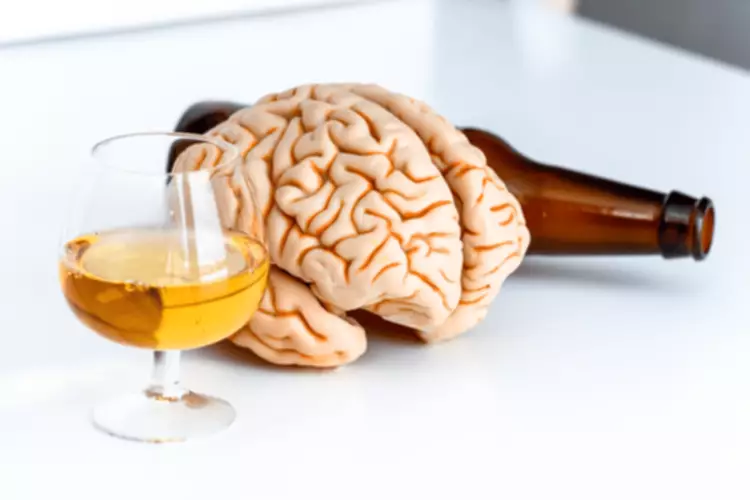
The relationship between alcohol consumption and blood pressure is noteworthy because hypertension is a major risk factor for stroke as well as for CHD. However, in many studies comparing lower levels of alcohol use with abstention, findings are mixed. Some studies have found low alcohol consumption to have no effect on blood pressure or to result in a small reduction, while in other studies blood pressure levels increased as alcohol consumption increased. Tim Stockwell, a psychologist and professor at the University of Victoria in British Columbia, also views the effects of low level drinking as small.
Impact on the health, quality of life, and safety of others
One study found that people who drank and ate during a problem solving test performed better than their sober counterparts. The study Sober living house was necessarily limited, and alcohol can certainly have detrimental effects on brain functions when confused in excess. A little inebriation could get the juices flowing, but don’t chug an entire handle of vodka in hopes of painting the next Mona Lisa. Mixing NyQuil and alcohol is dangerous and can have serious consequences.
Ways to reduce risks

What’s more, alcohol is dehydrating, and having multiple drinks can lead to a loss of electrolytes. If you don’t replace the fluids by drinking water or electrolyte-enriched drinks, you’ll likely feel light-headed after drinking. Hangovers should resolve on their own, but for some, the aftereffects of drinking are among the top reasons not to drink alcohol. Prevent dehydration by drinking at least one 8-ounce glass of water in between each alcoholic beverage, per the NLM. To put that into perspective, one shot of liquor has around 97 to 116 calories (before you pour in caloric mixers!) while a glass of wine can boast about 120 to 165 calories, per the U.S.
Moderate alcohol consumption can lead to a longer life.
Scientific evidence about drinking alcohol goes back nearly 100 years—and includes plenty of variability in alcohol’s health effects. In the 1980s and 1990s, for instance, alcohol in moderation, and especially red wine, was touted as healthful. Now the pendulum has swung so far in the opposite direction that contemporary narratives suggest every ounce of alcohol is dangerous. In the meantime, we must acknowledge the complexity of existing evidence—and take care not to reduce it to a single, misleading conclusion. Instead, much alcohol research is observational, meaning it follows large groups of drinkers and abstainers over time.
- While heavy drinkers are the only ones who experience liver effects from alcohol, the improvements can be felt very quickly.
- Blood sugar between meals — known as fasting blood glucose — may also decline (51, 52).
- She often brings her own nonalcoholic beer or wine to social gatherings, Laing said, and most bartenders are happy to make a mocktail.
- In 2002 according to the New York Times, Spanish researchers discovered that taking eight to fourteen glasses of wine per week especially Red Wine, contributed to the reduction of 60 percent of the risk of developing common cold.
- After all, most of us treat ourselves to a huge lie-in after a night out.

Heavy drinking can also cause problems well beyond the health of the drinker — it can damage important relationships. It’s all too common that problem drinking disrupts bonds with a spouse, family members, friends, coworkers, or employers. For millions of people, it’s a regular part of the dining experience, social and sports events, celebrations, and milestones. And the alcoholic beverage industry is a major economic force, responsible for more than $250 billion in sales annually in the US.
- It’s true that drinking to excess can lead to illness and disease, including several types of cancer, brain damage, and liver damage, and it can even shorten your life span.
- From social gatherings to daily relaxation, alcohol plays a significant role in many people’s lives.
- And an April 2017 review in the American Journal of Clinical Nutrition found that moderate drinking led to slower decreases in HDL cholesterol levels, depending on the type of beverage.
- Most heavy drinkers experience immediate benefits when they give up alcohol.
- According to the Dietary Guidelines for Americans, moderate drinking consists of two drinks or less per day for men of legal drinking age and one drink or less per day for women of legal drinking age.
- Whether or not to drink alcohol, especially for “medicinal purposes,” requires careful balancing of these benefits and risks.
Effects of Moderate Alcohol Consumption
This is because alcohol can have a negative effect on the healthy bacteria in our pros of drinking alcohol colon – known as the gut microbiome. Therefore, giving up alcohol is just one of many ways to improve gut health. Research by the American Medical Society on Alcoholism suggests that alcohol can be a bit of a double-edged sword in the bedroom… On the one hand, it can enhance our libido, but at the same time, it reduces our ability to perform. From falling asleep with your makeup on after a glass too many to the dull, grey complexion the day after, alcohol has a reputation for wrecking even the best-kept skincare regime.
A recent successful effort in the U.S. to launch an international study was funded by the National Institutes of Health. Although the proposal was peer-reviewed and initial participants had been randomized to drink in moderation or to abstain, post hoc the NIH decided to stop the trial due to internal policy concerns. Light drinkers tend to be mostly spared from the effects on the liver, but for heavy drinkers, the liver becomes inflamed, which can be dangerous over time,” says Dr. Mosquera.
- Drinking small amounts — especially of red wine — is linked to various health benefits.
- In fact, health experts say there isn’t a safe level of drinking alcohol, as alcohol use is the seventh leading risk factor for deaths globally, according to a landmark August 2018 study in The Lancet.
- It has been found to lower the levels of serotonin in our brain – a hormone that helps regulate our mood – so, if you’re wondering how to boost serotonin naturally and combat low mood, giving up alcohol is one solution.
Effects on Physical Health
From weight loss to better sleep, the long-term and short-term side effects can be noticeable. These are more than just interesting questions for researchers to study. The answers could guide recommendations of doctors, public health officials, and policy makers throughout the world — and they could save millions of lives. On the flipside, drink-defenders note that this accounts for a small portion of the total research, according to one 2020 analysis.

Pro 1: The age of legal majority (adulthood) in the United States is 18, not 21.
Though your mental and physical health with respect to alcohol is best discussed with your doctor, the connection between heavy alcohol use and depression is well known, and should not be taken lightly. Another study from 2017 followed approximately 333,000 adults who drink alcohol and found that those who kept their drinking habits in moderation saw a 21% lower risk of mortality than participants who never drank. This habit is known as binge drinking, per the CDC, and it’s the riskiest pattern of consumption. When you binge drink, the health effects are much like those of a heavy drinker.